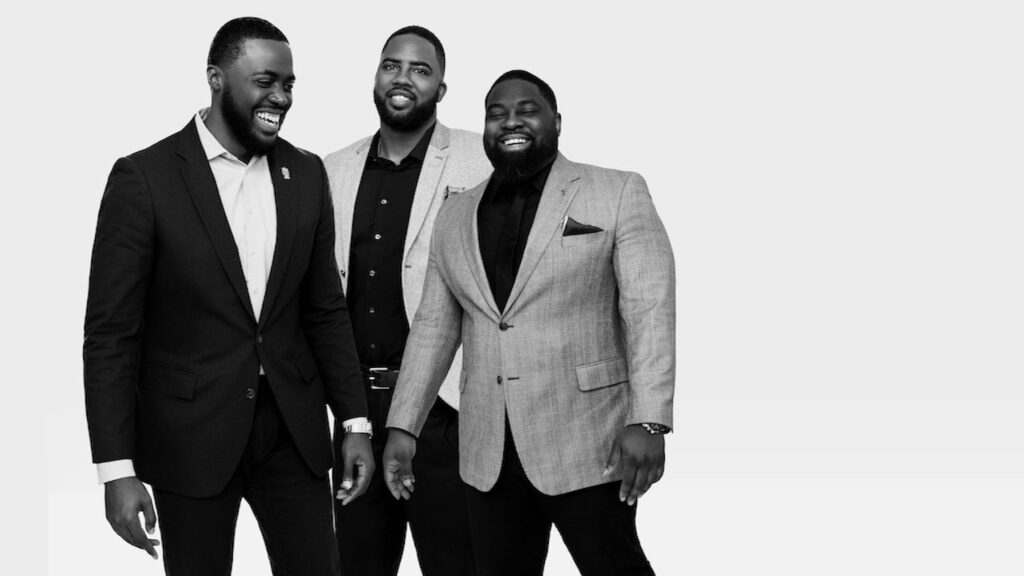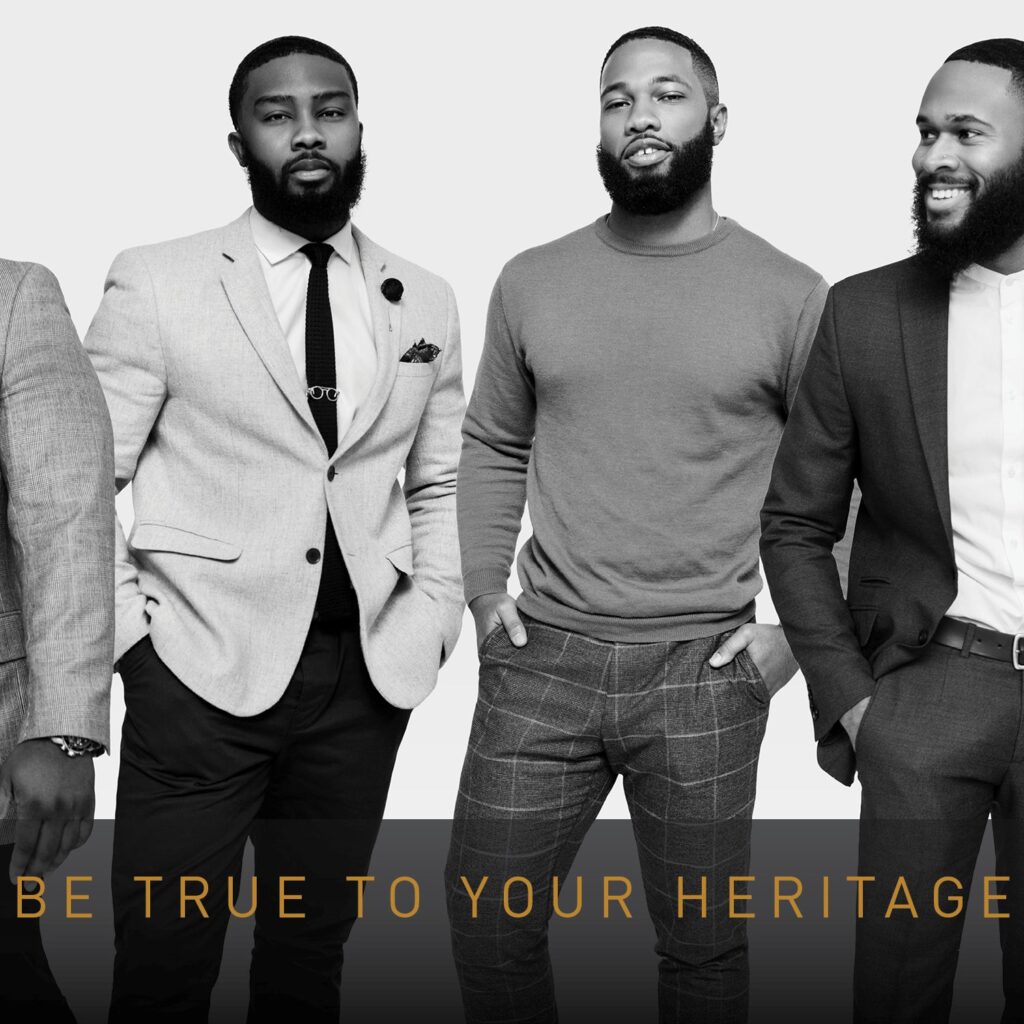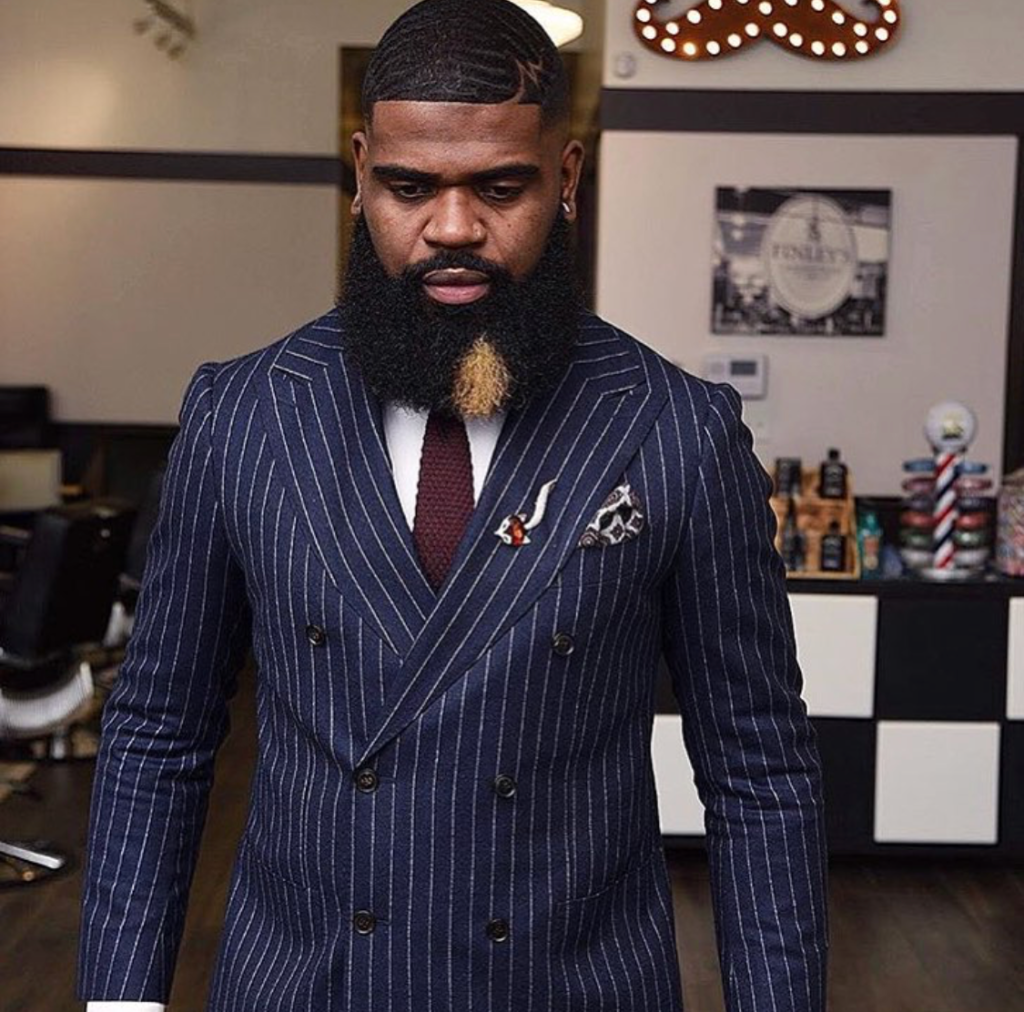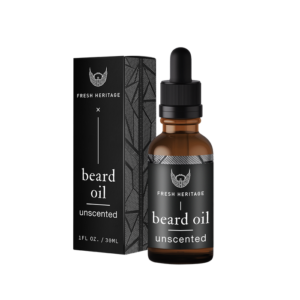


BLACK FRATERNITIES: OMEGA PSI PHI HERITAGE
This month Wonderlane has chosen to highlight the heritage of Black Greek Fraternities. Most of our consumers are members of a Black Greek Letter Organization or have heard of fraternities yet have no knowledge about them.Therefore, with this Greek Series we spoke with a few members of Black Greek Fraternities to share what their fraternities mean and the importance of their organizations’ heritage to our communities. For this series, we chose the hashtag #FHBrotherhood as a way to celebrate the differences of men yet recognize the similarities that bond them. Despite every difference, men are able to come together and form community through every aspect including similar upbringings, conversations about their beards, and of course Greek Fraternities. Omega Psi Phi Preview: “Ultimately it’s about what’s real… you feel like you’re the cream of the crop.” We spoke with three members, Jarell Alexander, Psi Chapter, Jared Fields, Spring ‘07, Upsilon Chapter, and Gregory Boler, Spring ‘08, Upsilon Chapter, of Omega Psi Phi Fraternity, Incorporated. Full Interview with the Alphas, Kappas and Omegas: (Kappas 0:15, Omegas 2:58, & Alphas 7:00)
BLACK FRATERNITIES: KAPPA ALPHA PSI HERITAGE
This month Wonderlane has chosen to highlight the heritage of Black Greek Fraternities. Most of our consumers are members of a Black Greek Letter Organization or have heard of fraternities yet have no knowledge about them.Therefore, with this Greek Series we spoke with a few members of Black Greek Fraternities to share what their fraternities mean and the importance of their organizations’ heritage to our communities. For this series, we chose the hashtag #FHBrotherhood as a way to celebrate the differences of men yet recognize the similarities that bond them. Despite every difference, men are able to come together and form community through every aspect including similar upbringings, conversations about their beards, and of course Greek Fraternities. Kappa Alpha Psi Preview: “…It’s excelling spiritually, physically, mentally and really being the best of the best.” We spoke with a member, Steven Fance, Spring ‘14, of the Stone Mountain Chapter of Kappa Alpha Psi Fraternity, Incorporated. Watch the video below to hear Steven’s story. Full Interview with the Alphas, Kappas & Omegas: (Kappas 0:15, Omegas 2:58, & Alphas 7:00)
BLACK FRATERNITIES: ALPHA PHI ALPHA HERITAGE
This month Wonderlane has chosen to highlight the heritage of Black Greek Fraternities. Most of our consumers are members of a Black Greek Letter Organization or have heard of fraternities yet have no knowledge about them.Therefore, with this Greek Series we spoke with a few members of Black Greek Fraternities to share what their fraternities mean and the importance of their organizations’ heritage to our communities. For this series, we chose the hashtag #FHBrotherhood as a way to celebrate the differences of men yet recognize the similarities that bond them. Despite every difference, men are able to come together and form community through every aspect including similar upbringings, conversations about their beards, and of course Greek Fraternities. AΦA Preview: “The things that men of Alpha have done you just don’t see anywhere else.” We spoke with three members, Khiry Peterson, Fall ‘10, Robert Chambers, Fall ‘15, and Reginald Greene, Fall ‘15 of the Zeta Mu chapter of Alpha Phi Alpha Fraternity, Incorporated. Watch the video below to see what they had to say about their fraternity. Full Interview with the Alphas, Kappas, & Omegas: (Kappas 0:15, Omegas 2:58, & Alphas 7:00)



Black Fraternities: It’s More Than Just Stepping Continued…
Last month we talked about three of the five fraternities that are a part of the Divine 9 in our introductory post to our new campaign #KnowYourHeritage. You can read it here. This week we want to continue the conversation about Black Fraternities and their importance in the African American community with a little background history of the final two fraternities in the Divine 9, Phi Beta Sigma and Iota Phi Theta. Phi Beta Sigma Also known as, “A brotherhood of conscious men actively serving our communities,” was established in 1914 at Howard University by A. Langston Taylor, Leonard F. Morse, and Charles I. Brown. The three men came together to create a group that exemplifies the ideals of brotherhood, scholarship, and service. Unlike many other Greek organizations at the time, Phi Beta Sigma founders strived for the organization to view itself as “part of” the general community rather than “apart from.” With over 185,000 members initiated since 1914, the international organization has awarded $2.5 million in scholarships to students. Through its four main programs: Bigger and Better Business, Education, Social Action, and Sigma Beta Clubs, members of the fraternity commit to 123,000 service hours annually and mentor 1,500 young men every year. A few famous Phi Beta Sigma members: Jerry Rice Bootsy Collins Emmitt Smith Al Roker Hines Ward Blair Underwood Terrence Howard Iota Phi Theta On September 19, 1963, the youngest of the five fraternities a part of the Divine 9 was founded by 12 students at Morgan State University: Albert Hicks, Lonnie Spruill, Jr., Charles Briscoe, Frank Coakley, John Slade, Barron Willis, Webster Lewis, Charles Brown, Louis Hudnell, Charles Gregory, Elias Dorsey, Jr., and Michael Williams. The twelve founders established the fraternity’s purpose, “The development and perpetuation of scholarship, leadership, citizenship, fidelity, and brotherhood among men,” during one of the most turbulent times in African-American History, the Civil Rights Movement. Just one month before its foundation, Dr. Martin Luther King Jr. delivered his historic, “I Have a Dream” speech. To date, Iota Phi Theta has 263 chapters around the world and has initiated over 30,000 members. It’s national service initiatives include The National Iota Foundation, The I.O.T.A. Youth Alliance, and The INROADS Partnership. Through its many other partnerships in the community, the organization continues to “build a tradition, not rest upon one.” A few famous Iota Phi Theta members: Terrance C. Carson Kendrick Jevon Dean Desi Arnez Hines II Manuel Olazabal Spencer Christian We started the #KnowYourHeritage campaign highlighting the fraternities of the Divine 9 because there aren’t enough outlets showcasing positive, African-American male organizations. Unfortunately, many people solely associate African-American frats with partying and stepping, ignoring their reputation for service. At Wonderlane, we agree with those who believe that black fraternities aid as a training ground for many of the world’s top African-American leaders. During our research, we found many different opinions on the necessity of black fraternities and the good they do. But as we addressed in last month’s post, Black Fraternities: It’s More Than Just Stepping, unless you know your heritage it is easy to fall victim to false information about your own people. As we continue our campaign to highlight our heritage, we invite you to share your beliefs and feedback on the topics we discuss. Speaking of heritage and history, did you know Wonderlane was created after two brothers took a life-changing trip to North Africa? Wonderlane has been helping men look and feel better by creating products that are inspired by the ancient traditions of our ancestors. Read more about our story here (pics and videos included)!
BLACK FRATERNITIES: IT’S MORE THAN JUST STEPPING
What do you know about black fraternities and sororities? Did you know that more than 800,000 people around the world belong to one including some of the most prominent figures in our history like Rev. Dr. Martin Luther King Jr., W.E.B. Dubois, Thurgood Marshall, and even Frederick Douglass? Or that there are nine historically Black Greek letter organizations (BGLOs) referred to as The Divine Nine? Even if you don’t know much about BGLOs you know one thing for sure, they put on one hell of a step show. If you attended college, you probably have at least one friend who pledged one of the top three black fraternities, Alpha Phi Alpha, Kappa Alpha Psi, or Omega Psi Phi. And if you’re just not “one of those people who could go through all of that to make friends,” you probably haven’t educated yourself enough on the heritage of black fraternities and why they matter. Don’t let movies like Stomp the Yard confuse you, black fraternities are about more than just stepping. Alpha Phi Alpha Alpha Phi Alpha, the oldest black fraternity, was established in 1906 on the campus of Cornell University in the midst of racial divide. The seven jewels forged a union to ensure their survival, and despite pushback from their white peers, the organization rose to be greatly recognized in Black society; celebrating 111 years to date. “Alpha Phi Alpha started as a social club to keep each other inspired and hold each other accountable on campus,” said one member. The leaders of the Fraternity succeeded in laying a solid foundation of scholarship, fellowship, good character, and the uplifting of humanity. Through its college and alumni chapters the fraternity serves the community through almost a thousand chapters in the United States, Africa, Asia, Europe, and the Caribbean, Their national programs are community outreach mentoring initiatives. Have you heard of Brother’s Keeper, A Voteless People is a Hopeless People, Go-to-High-School, Go-to-College, Project Alpha? Unlike many white Greek-letter organizations, black groups commit themselves to a lifetime of service to their organization’s activities. A Few Famous Alphas: Duke Ellington Lionel Richie Stuart Scott Kennan Ivory Wayans Frederick Douglass Rev. Dr. Martin Luther King Jr. W.E.B. Dubois Thurgood Marshall Dick Gregory Kappa Alpha Psi Don’t sleep on the Kappas either. Kappa Alpha Psi was established just a few years later in 1911 and is the first nationally incorporated college fraternity by African Americans. Their motto is, “Achievement in every field of human endeavor.” The organization was formed on the campus of Indiana University at a time where most black students could not remain longer than a year or so. At the time, the percentage of blacks on the campus was less than 1%, and a small group of men decided to form a fraternity for support. Kappa Alpha Psi pushes achievement and through the years has grown to have over 125,000 members with undergraduate and alumni chapters in nearly every state. They also have international chapters in Nigeria, South Africa, the West Indies, the United Kingdom, Germany, Korea, and Japan. A Few Famous Kappas: Johnny Cochran Arthur Ashe Cedric the Entertainer Finesse Mitchell Bob Johnson Reggie Lewis Mike Roberts Omega Psi Phi Last but certainly not least, Omega Psi Phi was established just a few months after Kappa Alpha Psi in 1911 at Howard University. You’ve probably seen and heard these men barking around campus in their purple and gold, but the fraternity’s foundation is much more solid than that. The organization was founded on the principles of manhood, scholarship, perseverance, and uplift. “When you’re a part of Omega Psi Phi, it is automatically assumed that you are of a certain caliber, said one member of the organization. Internationally renowned and home to over 750 chapters that call is one that each BGLO has. The practice of the calls stretches back to Africa where calls were used to communicate one’s location. Once enslaved, Africans continued to use the call-and-response tradition to communicate with each other. Although not official, calls are integral parts of black fraternities and aren’t to be used by non-members. A Few Famous Ques: Langston Hughes Sterling Brown Roland Hayes Bill Cosby Joe Torry Steve Harvey Rickey Smiley Tom Joyner Like the calls, stepping is an unofficial ritual. Believe it or not, stepping and step shows weren’t always a part of the black fraternal tradition. Stepping actually became popular in the 80’s and isn’t the end all be all or essence of black fraternities. In more recent days, people debate rather or not black fraternities actually hurt or harm the black community. Here at Wonderlane, we think the proof that black fraternities are important, positive fixtures in the black community is in the positive work they do within black communities. Collectively black fraternities give millions of dollars to causes that predominantly affect our communities and provide resources and mentoring to those in need. So, to those who think black fraternities are all about stepping, we say, know your heritage. Speaking of heritage and history, did you know Wonderlane was created after two brothers took a life changing trip to North Africa? Wonderlane has been helping men look and feel better by creating products that are inspired from the ancient traditions of our ancestors. Read more about our story here (pics and videos included)! [Resources] http://www.oppf.org/home.asp http://www.apa1906.net/ http://kappaweb.dev.onpressidium.com/ https://hbcustory.wordpress.com/2015/05/22/this-is-why-we-step-a-history-of-stepping-in-black-greek-lettered-life-culture/
THE SCARY TRUTH BEHIND WHY YOU CAN’T GROW A FULL HEALTHY BEARD
Photo Credit (@stylish_prick) Get ready to call your mom and dad. Since prehistoric times, beards have been a sign of masculinity, virility, and wisdom. In ancient times, beards were so culturally significant that cutting them off was considered a punishment and disgrace. Fast forward hundreds of years later and beards are back with a vengeance. From professional athlete to the respected banker, beards adorn the face of confident, stylish, and respected men. And then there are our baby face brothers. You know, the men who are well into their thirties and are still getting carded due to their bare-boyish face? While we may not agree with a bare face, here at Wonderlane we respect it and realize that there are some scary truths behind why some men can’t grow a full, healthy beard to save their lives. Beards are produced by a chemical known as dihydrotestosterone, which is synthesized from testosterone. You know, the hormone that stimulates male development and sexual characteristics. You would think that men who aren’t able to grow a full, healthy beard must have less testosterone than other males. However, the truth is, for the most part, all males have the same level of testosterone. So why is it that some men can go from a bare-face to a long, thick beard in a matter of days, while other men struggle to grow stubble? There are a few reasons: They don’t maintain a healthy diet and lifestyle. You’ve heard the saying, “You are what you eat” Well, that applies to your ability to grow a healthy beard too. Poor nutrition, lack of exercise, and even a poor sleep pattern can slow hair growth. They don’t maintain a consistent maintenance routine. A structured maintenance routine can do wonders for a beard. Cleansing, moisturizing, and trimming your beard on a regular basis stimulates hair growth and largely attributes to a beard worthy of envy. And the scariest truth behind why some men just can’t grow a full, healthy beard is Genetics. That’s right, you can actually blame your mom and dad for why you can’t grow a full, healthy beard. Men who are able to grow beards are more sensitive to testosterone than their baby-faced peers. So if you aren’t able to grow a beard, it’s not because you lack testosterone as rumors have it, it’s simply because your body responds to testosterone differently. But you’re in luck! You may not be able to grow a beard naturally, but there are two things you can consider if you’re desperate to join the #BeardGang. You could glue on a beard or consider a more invasive option, a beard transplant. We wish you the best of luck, beardless brother. Keep hope alive! How long did it take you to grow a beard? Did you have to change your lifestyle or add any products to make it happen? We want to know!












